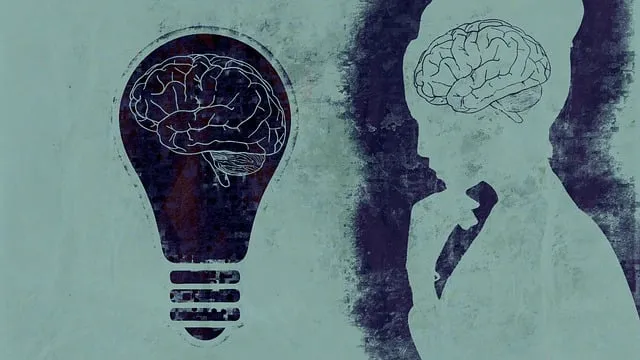Kaiser Permanente mental health facilities in Greenwood Village prioritize patient safety through comprehensive risk assessment and management. Using a multi-faceted approach, they consider clinical symptoms, social determinants, environmental factors, and individual resilience to identify risks early. Best practices include Inner Strength Development, Cultural Sensitivity, and Depression Prevention strategies. Staff enhance their own well-being with self-care practices like the Mental Wellness Podcast Series, ensuring professionalism and empathy in a secure clinical environment through continuous training and collaborative support systems.
Mental health professionals constantly navigate complex scenarios, requiring meticulous risk assessment to ensure patient safety. This article delves into the critical aspect of risk management within mental healthcare, drawing insights from Kaiser Permanente’s approach at its Mental Health Greenwood Village facility. We explore best practices for comprehensive risk assessments, focusing on identifying vulnerabilities and implementing strategies to mitigate potential dangers in clinical settings, ultimately fostering a secure environment for both patients and providers at Kaiser Permanente mental health facilities.
- Understanding Risk Assessment in Mental Health Care
- Best Practices for Conducting Risk Assessments at Kaiser Permanente Mental Health Greenwood Village
- Mitigating Risks and Ensuring Safety in Clinical Settings
Understanding Risk Assessment in Mental Health Care

In the realm of mental health care, risk assessment is a vital tool that helps professionals identify and mitigate potential risks to patients and themselves. This process involves systematically evaluating various factors that could impact a client’s well-being and the safety of mental health providers, such as those working at Kaiser Permanente mental health facilities in Greenwood Village. By employing comprehensive risk assessment techniques, mental health professionals can anticipate and address challenges that may arise during therapy sessions or in clinical settings, ensuring a supportive and therapeutic environment.
Mental Health Awareness is crucial for recognizing these risks, which can range from patient-related issues like suicidal ideation to staff burnout. Effective Risk Management Planning for Mental Health Professionals involves staying proactive by implementing strategies that promote well-being and prevent burnout. This includes regular training on risk assessment techniques, fostering an open dialogue about mental health concerns within the workplace, and establishing robust support systems to cater to both patient and provider needs.
Best Practices for Conducting Risk Assessments at Kaiser Permanente Mental Health Greenwood Village

At Kaiser Permanente mental health Greenwood Village, best practices for conducting risk assessments are deeply ingrained in their approach to patient care. The team prioritizes a holistic evaluation that considers not just clinical symptoms but also social determinants of health, environmental factors, and individual resilience. This comprehensive method, often referred to as the multi-faceted risk assessment, helps identify potential risks and vulnerabilities early on, enabling mental health professionals to intervene effectively.
One key aspect is the focus on Inner Strength Development, encouraging patients to cultivate coping mechanisms and build psychological resilience. Additionally, they emphasize Cultural Sensitivity in Mental Healthcare Practice, ensuring that assessments are inclusive and respectful of diverse cultural backgrounds. By integrating Depression Prevention strategies into their risk assessment process, the team at Kaiser Permanente mental health Greenwood Village aims to proactively address a common mental health concern while fostering overall well-being.
Mitigating Risks and Ensuring Safety in Clinical Settings

Mental health professionals at Kaiser Permanente mental health Greenwood Village are acutely aware that their work involves handling sensitive and potentially risky situations. Mitigating risks and ensuring safety in clinical settings is paramount to providing effective care. This involves a multi-faceted approach, including robust crisis intervention guidance tailored for diverse patient populations. By integrating evidence-based practices into routine clinical operations, the team at Kaiser Permanente mental health Greenwood Village fosters an environment that promotes both resilience and safety.
In addition, leveraging resources like the Mental Wellness Podcast Series Production and Mental Wellness Journaling Exercise Guidance can empower professionals to manage stress, enhance self-care, and prevent burnout—all crucial elements in maintaining a safe and effective practice. Through continuous training and collaborative support systems, mental health professionals at Kaiser Permanente mental health Greenwood Village remain equipped to navigate complex scenarios with empathy, professionalism, and a commitment to patient well-being.
Mental health professionals play a vital role in helping individuals navigate their emotional well-being, making it crucial to implement robust risk assessment strategies. As demonstrated by best practices at Kaiser Permanente mental health Greenwood Village, thorough risk evaluations can mitigate potential hazards and ensure patient safety within clinical settings. By adhering to these guidelines, mental health practitioners can enhance their ability to predict, manage, and reduce risks, ultimately fostering a secure environment for both patients and professionals alike.






